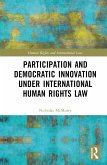Global ethics focuses on the most pressing contemporary ethical issues - poverty, global trade, terrorism, torture, pollution, climate change and the management of scarce recourses. It draws on moral and political philosophy, political and social science, empirical research, and real-world policy and activism. The Routledge Handbook of Global Ethics is an outstanding reference source to the key topics, problems and debates in this exciting subject, presenting an authoritative overview of the most significant issues and ideas in global ethics. The 31 chapters by a team of international contributors are structured into six key parts:
normative theoryconflict and violencepoverty and developmenteconomic justicebioethics and health justiceenvironment and climate ethics.
Covering the theoretical and practical aspects of global ethics as well as policy, The Routledge Handbook of Philosophy of Global Ethics provides a benchmark for the study of global ethics to date, as well as outlining future developments. It will prove an invaluable reference for policy-makers, and is essential reading for students and researchers in philosophy, international relations, political science, environmental and development studies and human rights law.
Hinweis: Dieser Artikel kann nur an eine deutsche Lieferadresse ausgeliefert werden.
normative theoryconflict and violencepoverty and developmenteconomic justicebioethics and health justiceenvironment and climate ethics.
Covering the theoretical and practical aspects of global ethics as well as policy, The Routledge Handbook of Philosophy of Global Ethics provides a benchmark for the study of global ethics to date, as well as outlining future developments. It will prove an invaluable reference for policy-makers, and is essential reading for students and researchers in philosophy, international relations, political science, environmental and development studies and human rights law.
Hinweis: Dieser Artikel kann nur an eine deutsche Lieferadresse ausgeliefert werden.
"This handbook offers a comprehensive account of current thought in global ethics, a concept that emerges as a late-20th-century effort to account for transnational challenges, effects, and values in fixing ethical conceptions...The chapters are evenly paced and rigorous, providing thorough coverage of the literature and conceptual landscapes. The role of international agencies and efforts is emphasized throughout. Questions of intrinsic value appear in some but not all the treatments--nearly constituting a subtheme, and at least raising the possibility for a meta-reading of the handbook fruitful for students... Summing Up: Highly recommended." - R. Ward, Georgetown College, CHOICE








